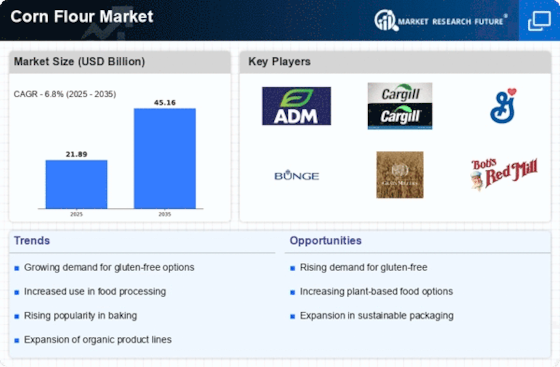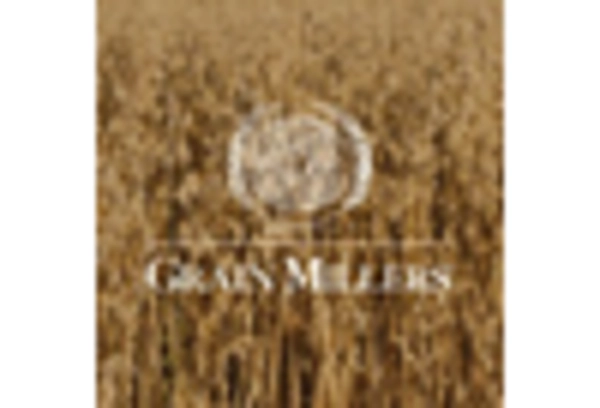Market Analysis
In-depth Analysis of Corn Flour Market Industry Landscape
The corn flour market is influenced by various market factors that shape its dynamics, trends, and overall performance. These factors encompass a wide range of economic, environmental, social, and technological influences, which collectively impact supply, demand, pricing, and consumer preferences within the market.
One of the primary market factors affecting the corn flour market is agricultural production and supply. Corn, as the primary raw material for corn flour production, is subject to fluctuations in yield due to factors such as weather conditions, soil quality, pest infestations, and disease outbreaks. Any disruptions or challenges in corn cultivation can lead to fluctuations in the supply of corn flour, affecting availability and pricing within the market.
Furthermore, government policies and regulations play a significant role in shaping the corn flour market. Policies related to agricultural subsidies, trade tariffs, import-export regulations, and food safety standards can impact corn production, processing, and distribution. For example, changes in government subsidies for corn farmers or tariffs on imported corn can influence domestic corn prices, subsequently affecting the cost of corn flour production and pricing in the market.
Moreover, consumer preferences and dietary trends are important market factors that influence the demand for corn flour and corn-based products. As consumer awareness of health and wellness grows, there is a growing demand for gluten-free and non-GMO alternatives to traditional wheat flour. Corn flour, with its gluten-free properties and versatility in cooking and baking, has gained popularity among health-conscious consumers seeking alternative flours for various culinary applications. Additionally, the increasing prevalence of gluten sensitivities and allergies has further fueled demand for corn flour and corn-based products in the market.
In addition to consumer preferences, changing dietary habits and culinary trends also impact the corn flour market. Corn flour is a staple ingredient in various cuisines worldwide, including Latin American, Caribbean, and Southeast Asian cuisines. As global food trends evolve and multicultural cuisines gain popularity, the demand for corn flour and corn-based products is expected to continue growing. Moreover, the rising popularity of ethnic and street foods, such as tacos, tamales, and arepas, has contributed to increased demand for corn flour as an essential ingredient in these traditional dishes.
Furthermore, technological advancements in food processing and manufacturing have significant implications for the corn flour market. Innovations in milling technology, grain processing techniques, and product formulations have improved the efficiency, quality, and versatility of corn flour production. Advanced milling processes can produce corn flour with finer texture and consistency, enhancing its suitability for a broader range of culinary applications. Additionally, advancements in packaging technology have extended the shelf life and freshness of corn flour products, improving their marketability and consumer appeal.
Environmental factors, such as climate change and sustainability concerns, also impact the corn flour market. Corn cultivation is highly dependent on water availability, temperature, and soil conditions, making it vulnerable to the effects of climate variability and extreme weather events. Shifts in temperature and precipitation patterns, as well as water scarcity, can affect crop yields and quality, leading to supply disruptions and price volatility in the corn flour market. Furthermore, sustainability considerations, such as land use practices, water management, and carbon footprint, are increasingly important for consumers and food companies alike, driving demand for responsibly sourced and environmentally friendly corn flour products.
Lastly, market competition and industry dynamics shape the corn flour market landscape. The market is characterized by intense competition among key players, including food manufacturers, milling companies, and agricultural suppliers. Product differentiation, branding, marketing strategies, and distribution channels are critical factors for success in the competitive corn flour market. Moreover, industry consolidation, mergers and acquisitions, and strategic partnerships can impact market dynamics, influencing pricing, market share, and competitive positioning among market players.


















Leave a Comment